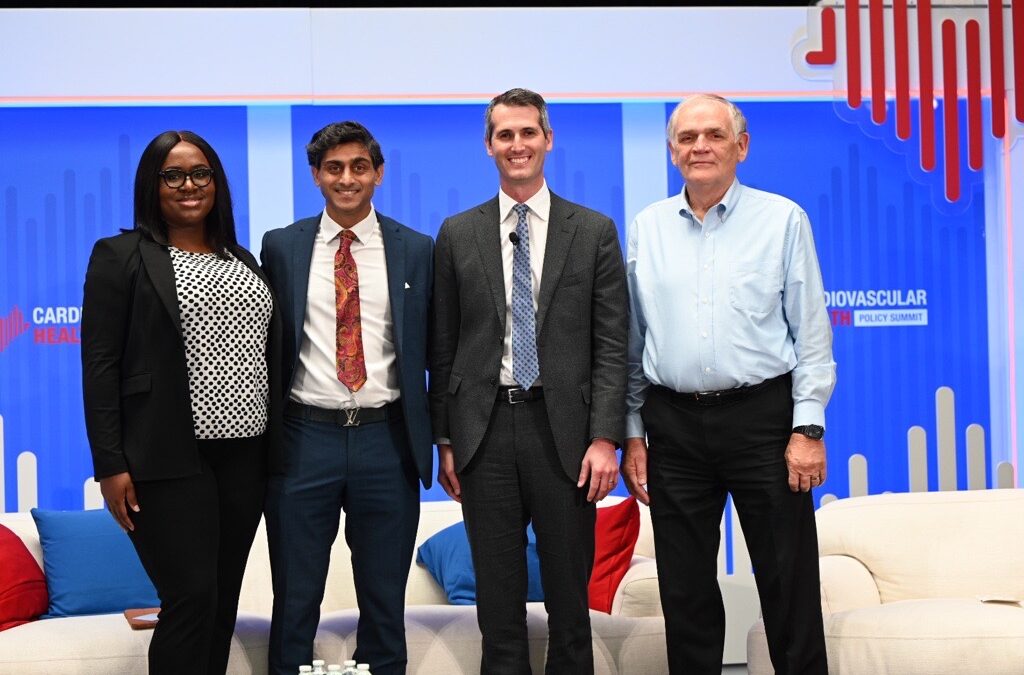This year’s national Cardiovascular Health Policy Summit brought together patient advocates, health care providers and policy experts to discuss solutions to barriers that keep cardiovascular patients from accessing the care they need.
In case you missed it, here is a summary of the event in six quotes.
“My father passed away at 56. My mother at 63. My brother passed away at 44. And my sister passed away at 49.”
Darin Burnham, an Alabama patient with familial hypercholesterolemia, described his family history with high cholesterol. He explained that a normal cholesterol panel couldn’t identify the genetic factors causing his condition. Having survived five heart attacks, Darin said cardiovascular events take a heavy emotional and mental health toll on patients and their loved ones.
“Insurers are so focused on the cost of a drug that they’ve lost sight of total care.”
Kathy Oubre, MS, of the Community Oncology Alliance, took insurers to task for practices like non-medical switching and formulary exclusions. Non-medical switches, she said, are cost-cutting measures insurers use to increase their margins – business decisions that insert insurers between clinician and patient. Formulary exclusions, which she noted have risen dramatically in recent years, result in health plans dropping coverage for certain mediations altogether.
“Thirty percent of heart events each year are recurrent.”
Lisa Maher, DNP, of the Preventive Cardiovascular Nurses Association, said that the clinical profile of patients with heart disease has changed significantly since the 1970s. Today it’s more common for heart patients to be much younger – in their 20s and 30s – than in prior decades. Lisa attributed this change to worse diets and a more sedentary lifestyle. A lack of secondary and tertiary prevention is also a major factor.
“After 20 years of doing medicine, I don’t need to be told what I need to do clinically.”
Dharmesh Patel, MD, president of the Partnership to Advance Cardiovascular Health, lamented the bureaucratic web that clinicians must fight through to get innovative treatments for their patients. He says that clinicians need fewer barriers, less prior authorization and easier access to tools that can help them treat patients.
“A clinician has no way of knowing if a patient will get the prescribed medication when they arrive at the pharmacy.”
Richard Kovacs, MD, of the American College of Cardiology, explained how insurance practices make getting a prescribed medication difficult. Having cardiovascular disease puts patients in a delicate situation, he explained, and delays in access can be life or death. He noted that disparities – health literacy, for example – can affect a patient’s ability to navigate insurance appeals, raising the stakes for at-risk communities.
“It’s created a lot of challenges on our side.”
Sue Philpott, RN, of Corewell Health, praised a novel medication recently approved by the FDA to treat obstructive hypertrophic cardiomyopathy. The medication, she said, is the first to address the condition’s underlying causes and can materially improve patients’ lives. The paperwork process, however, can be taxing – for the nurses and staff completing it but also for patients, who must weather an onerous appeals process.
A recording of the summit is available to watch here.




